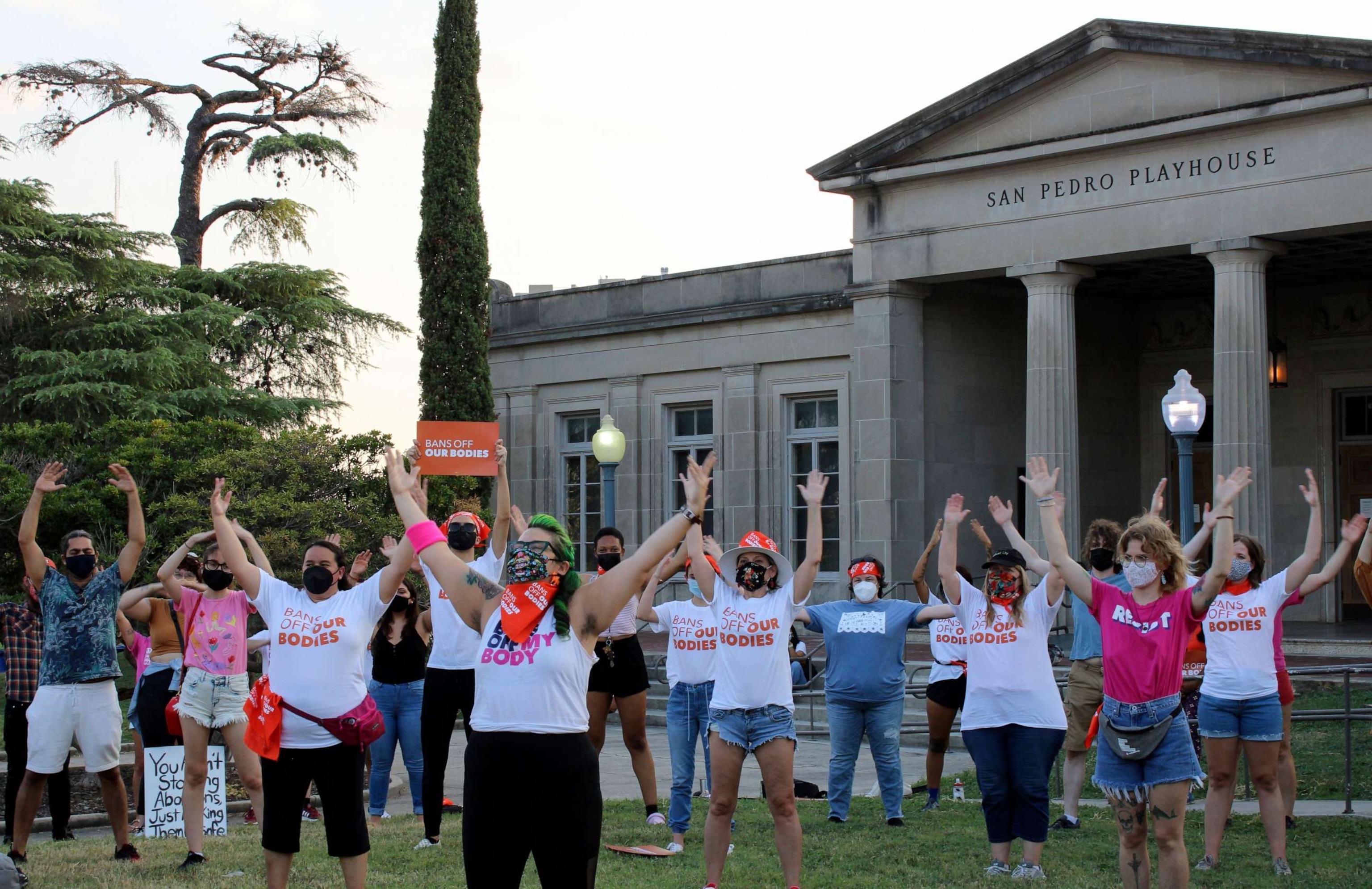Nearly 9,800 more births occurred in Texas a year after the state's 2021 abortion ban: Study
The ban prevented abortions from being performed after six weeks.
Nearly 9,800 additional live births occurred in Texas the year after a strict abortion ban went into effect in 2021, a new analysis found.
In the study, published Thursday in the Journal of the American Medical Association (JAMA), a team from Johns Hopkins Bloomberg School of Public Health looked at available data of live births from all 50 states and Washington, D.C. between 2016 and 2022.
Next, they used statistical modeling to estimate what birth counts in Texas would have looked like had S.B.8 -- the law banning nearly all abortions after 6 weeks -- not passed.
Researchers estimated 287,289 live births in Texas would have occurred from April 2022 to December 2022 had the abortion ban not gone into effect in September 2021. The actual number of births during this period was 297,088, meaning there were 9,799 more live births.
In 2021, Texas lawmakers passed, and Gov. Greg Abbott signed into law, S.B.8 , which bans abortion after six weeks gestation, before many women know they are pregnant.
S.B.8 also allows any private citizen to sue anyone who performs an abortion or assists a pregnant person in obtaining the procedure.

After the Supreme Court overturned Roe v. Wade last year, Texas had a trigger law go into effect in August 2022, banning abortion at nearly all stages, and making it a felony, punishable by up to life in prison, with an exception to save the life of a pregnant person.
"There just are a lot of questions around what's going to happen to actual fertility, whether people are going to be able to get an abortion or not," co-lead author Alison Gemmill, an assistant professor in the John Hopkins Bloomberg School of Public Health's Department of Population, Family and Reproductive Health, told ABC News.
Gemmill said the findings highlight how thousands of people may not have had a choice but to continue an unwanted or unsafe pregnancy due to the ban, and there may be even more who can't after the Supreme Court decision, known as Dobbs v. Jackson Women's Health Organization.
"At the time that this Texas ban was passed, people could still go out of state to the neighboring states," Gemmill said. "But since Dobbs, we know that all of those neighboring states have also banned abortion and so there's the question of whether that impact is going to be larger now that you have fewer states where people can access abortion."
Although studies have shown there was an increase in abortions provided to Texans in other states, the team said the findings of its analysis suggest not everyone who might have wanted an abortion was able to get one after S.B.8. passed.
This is not the first study to examine the effects of Texas's abortion ban. A 2022 study found abortions in or around Texas fell by 38% the month after the ban went into effect.
Gemmill said the analysis did not go into the effects of being denied access to abortion, but research has shown it can have a serious impact on physical and mental health.
"Even though we're not directly measuring the negative consequences of the study, we know from other studies … that people who are denied wanted abortions face a host of negative consequences," she said. "We need to contextualize what these births mean. It's nuanced."




